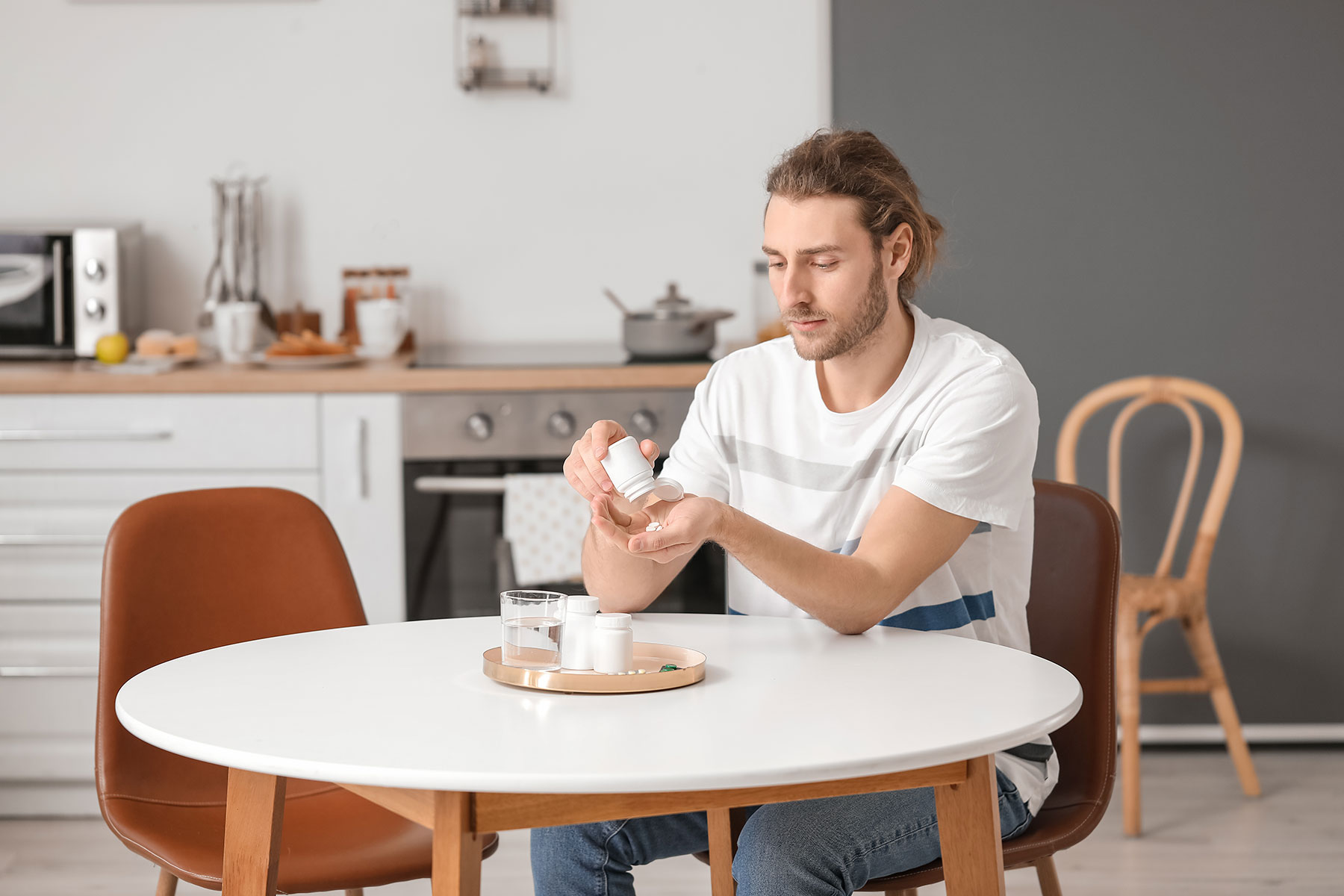Self-medication is becoming more and more prevalent in our society today as people are looking for solutions to their problems. Lack of access to medical or mental health care and stigma can contribute to those who choose to self-medicate. Unfortunately, self-medication can have severe consequences for one’s physical and psychological health. At Evoke Wellness at Cohasset, we understand the risks of self-medication and strive to help individuals find healthier alternatives.
We believe in providing quality, compassionate care to help individuals recover and live healthier lives. Our highly trained staff offers various treatments to meet each patient’s individual needs—contact 866.931.6429 to learn more about our dual diagnosis treatment program.
What Is Self-Medication?
Self-medication is the practice of using drugs, alcohol, or other substances to cope with emotional or physical pain. It can be a form of self-treatment, but it’s important to remember that self-medication can lead to addiction and mental health issues such as depression and anxiety.
The Risks of Self-Medication
When people self-medicate, they often put their health at risk. Self-medicating can affect both the physical and mental health of an individual. Some risks associated with self-medication include:
- The risk of drug interactions. Taking multiple medications or drugs together can lead to dangerous side effects or overdose.
- Creating a physical dependence on substances. Regularly using certain drugs or alcohol regularly can lead to an addiction.
- Underlying mental health issues can be overlooked. Self-medication may mask the symptoms of underlying mental health conditions, such as depression or anxiety, making it difficult to get proper treatment. It can also worsen disorders such as bipolar disorder.
While self-medication may seem like an easy solution, it can have serious consequences. At Evoke Wellness at Cohasset, we understand the risks of self-medication and are dedicated to helping individuals find healthier alternatives.
Treatment for Self-Medication
If you or someone you know is struggling with self-medication, help is available. Our dual diagnosis treatment program at Evoke Wellness at Cohasset combines medication, psychotherapy, and other evidence-based treatments to address each individual’s physical and mental health needs. Our goal is to provide quality care that leads to long-term recovery. Our highly trained staff provides a variety of treatments tailored to each individual’s needs. These include:
- Cognitive-behavioral therapy (CBT) – CBT is a type of psychotherapy that helps people learn to recognize and change negative thought patterns.
- Dialectical behavior therapy (DBT) – DBT is a type of cognitive-behavioral psychotherapy that helps people manage challenging emotions such as anger, depression, and anxiety.
- Medication management – Our team can work with you to find the best medication for your needs.
- Holistic therapies – We offer a variety of holistic treatments, such as yoga, mindfulness classes, and art therapy.
We are dedicated to providing compassionate, personalized care for those struggling with substance abuse or mental health issues. If you or someone you know requires help, you may benefit from a dual diagnosis program, which means treating the underlying issues and conditions contributing to self-medication or addiction and the addiction itself. Working on the underlying concerns fueling addiction can significantly improve your chances of recovery.
Addiction and Mental Health Treatment at Evoke Wellness
At Evoke Wellness at Cohasset, we understand the dangers of self-medication and strive to help individuals find healthier alternatives. We are committed to providing quality care to help you or your loved one find long-term recovery—contact 866.931.6429 for more information about our dual diagnosis treatment program. Together we can create a treatment plan that meets your individual needs and help you recover.




